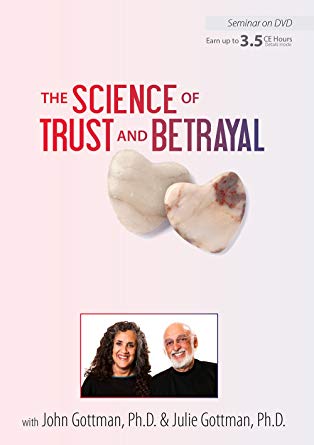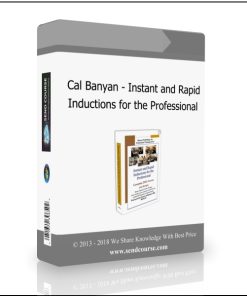The Science of Trust and Betrayal with John Gottman, Ph.D. – John M. Gottman | Available Now !
$60.00 $16.00
The Science of Trust and Betrayal with John Gottman, Ph.D. – John M. Gottman | Instant Download !
World renown relationship expert, Dr. John Gottman’s newest research reveals the dynamics of betrayal and how to safeguard (or heal) your relationship. Based on this research, Dr. Gottman will discuss his new theory of how to conceptualize “trust” and “betrayal” using interdependence game theory during this recording. Trust and betrayal metrics here are not personality traits, but characteristics of daily interaction processes.
Join Dr. Gottman as he presents practical flowcharts for how couples build trust and loyalty, versus how couples build distrust and betrayal. The social skill of “emotional attunement” will be described precisely. New strategies for preventing distrust and betrayal, and strategies for healing from betrayal will be presented. During this presentation, these concepts will be illustrated from actual cases.
- Describe the fundamental process for building or eroding trust.
- Explain the fundamental process for building loyalty or eroding loyalty.
- Discuss the broad outlines of a three-phase therapy for healing from betrayal.
Gottman Research and Methods
- Previous work with couples
- Basic research and intervention research
- What predicts divorce
The Sound Relationship House Theory and the 7 Principles for Making Relationships Work
The Science of Trust
- Trust and Betrayal
- Why do people have affairs?
- Does Trust matter?
What is “Trust”?
- “ATTUNE”ment
- Major research finding on Trust
Changing Distrust to Trust – Therapeutic Tools
- Gottman-Rapoport Exercise
- Dreams Within Conflict
- Aftermath of a Fight
- Guide to Great Listening
- The Stress-Reducing Conversation
Betrayal
- Negative CL-alts begin the cascade toward Betrayal
- What is a Negative CL-ALT
- Case example
- Gottman-Rusbult-Glass Cascade toward Betrayal (24-Steps)
Healing From An Affair
- Gottman Atone, ATTUNE, Attach therapy
Get The Science of Trust and Betrayal with John Gottman, Ph.D. of author John M. Gottman
Q & A
Ask a question
Your question will be answered by a store representative or other customers.
Thank you for the question!
Your question has been received and will be answered soon. Please do not submit the same question again.
Error
An error occurred when saving your question. Please report it to the website administrator. Additional information:
Add an answer
Thank you for the answer!
Your answer has been received and will be published soon. Please do not submit the same answer again.
Error
An error occurred when saving your answer. Please report it to the website administrator. Additional information:
Related products
NLP & Hypnosis
NLP & Hypnosis
NLP & Hypnosis
Ecommerce
NLP & Hypnosis












Exactly as described, fast shipping, great price, securely packed | The Science of Trust and Betrayal with John Gottman, Ph.D. – John M. Gottman